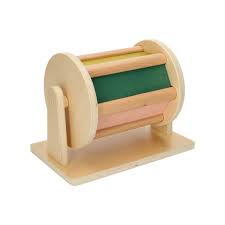Types of Spinning Drums
2024-07-29
A spinning drum is a versatile device used in various applications, from industrial processes to laboratory experiments. Its main function is to rotate or spin an object or material inside a cylindrical drum. The design and purpose of a spinning drum can vary widely based on its application. Here’s an overview of different types of spinning drums and their uses:
Types of Spinning Drums:
1. Industrial Spinning Drums:
- Applications: Used in industries for mixing, coating, drying, or processing materials.
- Examples:
- Rotary Drum Dryers: Used to dry bulk materials by rotating the drum and exposing the material to hot air or gas.
- Drum Mixers: Employed for mixing concrete, asphalt, or other bulk materials. The drum rotates to ensure thorough mixing.
2. Laboratory Spinning Drums:
- Applications: Utilized in scientific research and laboratory settings for various purposes, including sample preparation and testing.
- Examples:
- Centrifuge Drums: Part of centrifuges used to separate components of a mixture based on density. The drum spins at high speeds to create centrifugal force.
- Ball Mills: Used to grind and blend materials into fine powders by rotating the drum with grinding balls inside.
3. Agricultural Spinning Drums:
- Applications: Used in farming and agriculture for processing crops or livestock feed.
- Examples:
- Seed Cleaners: Use spinning drums to separate seeds from debris.
- Feed Mixers: Mix feed ingredients by rotating the drum to ensure uniform distribution.
4. Textile Spinning Drums:
- Applications: Employed in the textile industry for processing fibers and yarns.
- Examples:
- Spinning Machines: Convert raw fibers into yarn by spinning them in a drum or spindle.
5. Recreational Spinning Drums:
- Applications: Found in various recreational and artistic applications.
- Examples:
- Spin Art Machines: Create art by spinning paint on a canvas inside a drum.
- Spinning Rides: Amusement park rides that spin passengers in a drum-like structure for entertainment.
Key Features:
1. Material and Construction:
- Drum Material: Can be made from metal, plastic, or other durable materials depending on the application.
- Construction: Designed to withstand the forces generated during spinning, with features like reinforced walls and precision bearings.
2. Drive Mechanism:
- Motor: Powers the rotation of the drum. The motor’s speed and power are adjustable based on the specific needs of the application.
- Gearbox: Often used to control the rotational speed and torque of the drum.
3. Control Systems:
- Speed Control: Allows adjustment of the drum’s rotation speed to suit different processes.
- Timers and Programmable Settings: Enable precise control over the duration and conditions of the spinning process.
4. Safety Features:
- Enclosures: Safety covers or guards to prevent access to moving parts during operation.
- Emergency Stops: Buttons or systems to quickly halt the spinning drum in case of emergencies.
Applications:
1. Mixing and Processing:
- Industrial: Mixing bulk materials, such as chemicals or minerals.
- Laboratory: Preparing samples or grinding materials.
2. Separation and Classification:
- Centrifugation: Separating components based on density.
- Sorting: Classifying materials or seeds.
3. Drying and Coating:
- Drying: Removing moisture from materials.
- Coating: Applying coatings or finishes to materials.
4. Artistic and Recreational:
- Art Creation: Producing spin art or other creative projects.
- Entertainment: Spinning rides or attractions.
Maintenance and Care:
1. Regular Inspection:
- Check for wear and tear, especially on bearings, seals, and the drum surface.
2. Cleaning:
- Keep the drum and internal components clean to prevent contamination and ensure optimal performance.
3. Lubrication:
- Regularly lubricate moving parts to reduce friction and wear.
4. Calibration:
- Ensure that speed controls and other settings are properly calibrated for accurate operation.
Spinning drums are essential tools in various fields, providing a wide range of functionalities from mixing and processing to artistic creation and recreation. Proper maintenance and understanding of their operation ensure effective and efficient performance.



